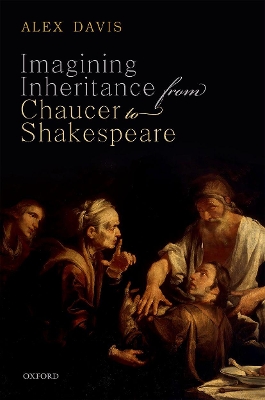Impossible bequests of the soul; an outlawed younger son who rises to become justice of the king's forests; the artificially-preserved corpse of the heir to an empire; a medieval clerk kept awake at night by fears of falling; a seventeenth-century noblewoman who commissions copies upon copies of her genealogy; Elizabethan efforts to eradicate Irish customs of succession; thoughts of the legacy of sin bequeathed to mankind by our first parents, Adam and Eve.
This book explores how inheritance was imagined between the lifetimes of Chaucer and Shakespeare. The writing composed during this period was the product of what the historian Georges Duby has called a 'society of heirs', in which inheritance functioned as a key instrument of social reproduction, acting to ensure that existing structures of status, wealth, familial power, political influence, and gender relations were projected from the present into the future. In poetry, prose, and drama—in
Chaucer's Troilus and Criseyde and his Canterbury Tales; in Spenser's Faerie Queene; in plays by Shakespeare such as Macbeth, As You Like It, and The Merchant of Venice; and in a host of other works—we encounter a range of texts that attests to the extraordinary imaginative reach of questions of
inheritance between the fourteenth and the seventeenth centuries. Moving between the late medieval and early modern periods, Imagining Inheritance examines this body of writing in order to argue that an exploration of the ways in which premodern inheritance was imagined can make legible the deep structures of power that modernity wants to forget.
- ISBN10 0198851421
- ISBN13 9780198851424
- Publish Date 25 February 2020 (first published 23 January 2020)
- Publish Status Active
- Publish Country GB
- Imprint Oxford University Press
- Format Hardcover
- Pages 312
- Language English
